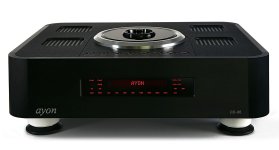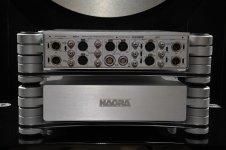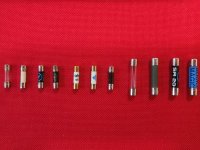Why don't you just quit constantly defending your purchase if you think it was a wise one and just enjoy it. Where as you may think your purchase choice was the best available not everyone is going to agree and that is why there are hundreds of equipment manufacturers.
Thread topic is one reviewer challenging the meaningfulness of some measurements audio reviewers are taking.
Background may or may not be that you can see Maggie 0.7s in the background. When those were reviewed in Stereophile the reviewer at that time thought they were excellent and recommended an A rating. But JA criticized them because of some of his measures and used his editor powers to grade them down. This is fairly easy within one magazine, cujus regio ejus religio.
So I posted an example where I thought I had observed something similar. While it is true that I am more likely to post about Magico, Pass or Shunyata and other products that I do have in my systems, I think that would be the same for most other Sharks as well. That is only natural as people usually know products better they have researched prior to purchase.
In this case a challenge was rightfully raised against my example, pointing out that there is a possibility the product in question has some challenges, because some measurements were taken and used to criticize it. To elaborate on why I thought this might be something like what Guttenberg was referring to, I shared three reviews and awards that product had received. Point being, if four similarly qualified reviewers assess the same product and 75% say it is superb and even give it a Product of the Year award and 25% say it is meh, purely stochastically seen the odds that one gets it right and three get it wrong is fairly low. Which kind of brings us back to the question how meaningful some of the reviewer measurements really are.
Two more measurement examples:
1) Tubes are bad and terrible, because they introduce some distortions to the system. Nevertheless some of the most experienced audiophiles swear on tubes and are convinced they simply sound the best. But there are ‘bad’ measurements. So what, tubes do sound good.
2) Harbeth vs Magico: some say Harbeths are terrible because the cabinet rings like a church bell. Others say they have been designed to have a resonating corpus, just like instruments. Truth is in the ears of the beholder.
Long story short, I absolutely think it is very important to measure in order to make good audio products. Whether reviewers always pick the relevant measures when reviewing them, I’m not so sure.
Sent from my iPad using Tapatalk




